This is what history's most vital subcultures look like now
- Text by Theo McInnes
- Photography by Theo McInnes

Over 60 years ago, subcultures began to splinter off from mainstream British society, reflecting radical changes in lifestyle.
Generations of post-war youth took on forms of identity that had never been seen before – explosions of style that provoked outrage at the time, but have become perfectly acceptable today.
Yet speak to those innovators now and their stories of self-expression – how our early years shape us, why some passions never stop burning, what it feels like when the world catches up with you – still resonate, offering a glimpse into the future of any true original.
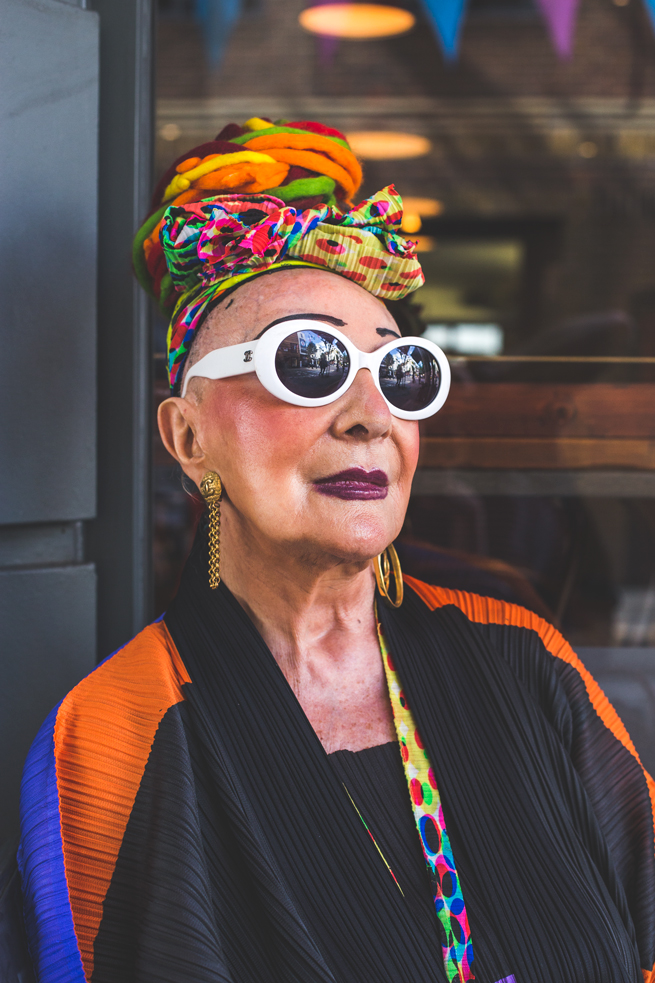
Garbo Roche, 83-year-old fashionista – Covent Garden, London
“When I was about 14, I lived above a fish and chips shop… and I stank of them. Kids used to tease and bully me, ‘Fish and chips! Fish and chips!’
“At the time, my mother would only give me two frocks a week to wear; she was quite weird. She wouldn’t wear one hat but two or three. I was so badly dressed, so ragged, that I had to change the way I presented myself. It probably all stems from not wanting to look like my mother.
“Things changed immensely in the ’60s: we didn’t have to wear corsets anymore; everything was a lot freer. The clothes weren’t like the rubbish stuff around now; they’d be made of fabulous materials like pink suede.
“The designers were wonderful, the dresses were all well-made and only suited certain types – not just any girl in the street. I was the first person out of everyone I knew to buy a pair of jeans. I remember this lady saying, ‘Oh, you look so different!’ But I’ve always remembered standing out. My son would never let me drop him off at school because of it.
“It wasn’t a rebellion for me. There was just this freedom that felt so colourful. I did look in the mirror a lot back then but I don’t really bother anymore. My look, the way I dress, is not a conscious effort at all. When I’m home in the evening, I don’t change into tracksuits or whatever.
“I am the way I am from morning until night… then I’ll wear something totally different the next day. It’s like baking a cake. If you cook it and you’re not too sure how it’s going to come out – the way I look is a bit like that!
“Today I just see a devaluation of everything. I sit with a coffee in Covent Garden and look around. There’s nothing I see that is attractive. That style and beautiful freedom of ’60s clothes has all gone.”
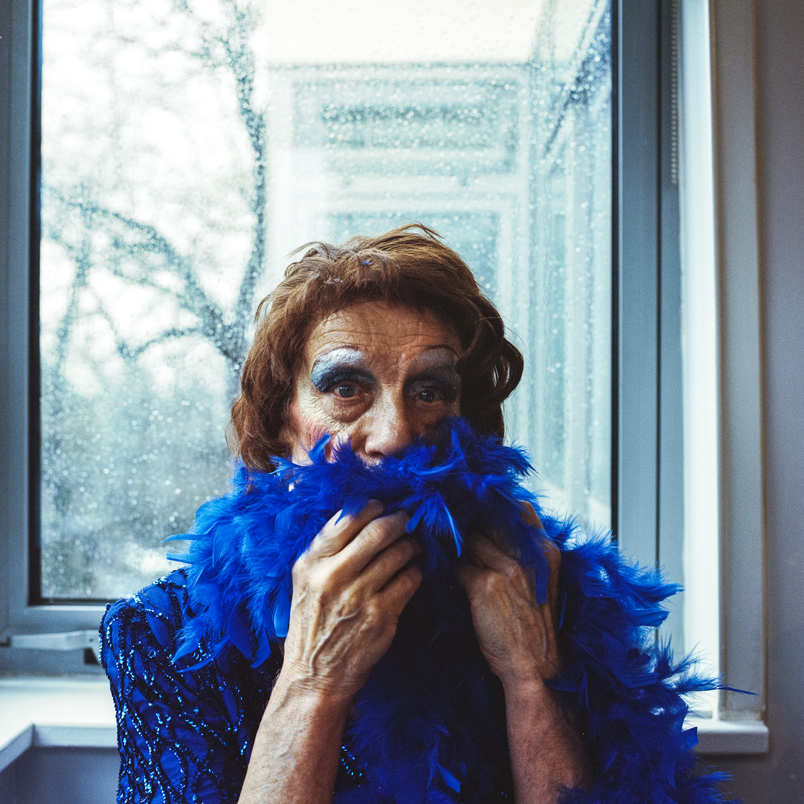
Stan Doran, 85-year-old drag queen – Hampstead, London
“Most people had a choice: either you were a bank robber or a boxer. I chose to box but managed to fall in with the villains as well. You’d be at different boxing clubs and someone would say, ‘See that fella over there? He’s a mobster.’
“I’d look at the lovely suit and think, ‘Christ, I’d like a suit like that.’ They used to show a bit of love as well; I’d never had anyone put their arm around me before or take notice when I was a kid.
“My mum wanted me to get a job to help pay for the rent, and mobsters would say, ‘Here, how’d you like to work for us?’ So I’d do little favours, take an envelope to Greek Street or whatever. I was diagnosed with learning difficulties, you see; ‘educationally subnormal’ they called it.
“Where was a kid like me going to get a job? It gave me a feeling of being part of something; they made you feel like somebody. I remember delivering this thing once and the guy read it. ‘What the fucking cheek is this?’ he said.
“I told him I was just delivering it, but he kept going on so I turned to walk out and told him to fuck off. With that – whack! – he stuck a knife straight through my hand. I was a man before I was a boy. I grew up too quick; we never saw our childhood.

Stan as a young man.
“I was 70 when I got into acting, but only did my first drag performance recently after gaining the confidence to actually go out there and do it. I wish to God I could have done that when I was younger. You’ve got to remember that to be a gay man back then was a criminal offence.
“I remember getting dressed up in all my mum’s clothes once. She was out at a party but came back, walked in and just couldn’t understand. ‘You’re a fucking man! What are you doing?’
“I think there’s been something in me all my life; I feel as if I’m more of a woman than a man. I’ve never been able to express it in the right way and maybe now it’s just coming out.
“My dad never talked about gay people but he’d say, ‘Be who you are, don’t be afraid. If they don’t like who you are, then that’s their problem. Just never cheat on yourself.’”
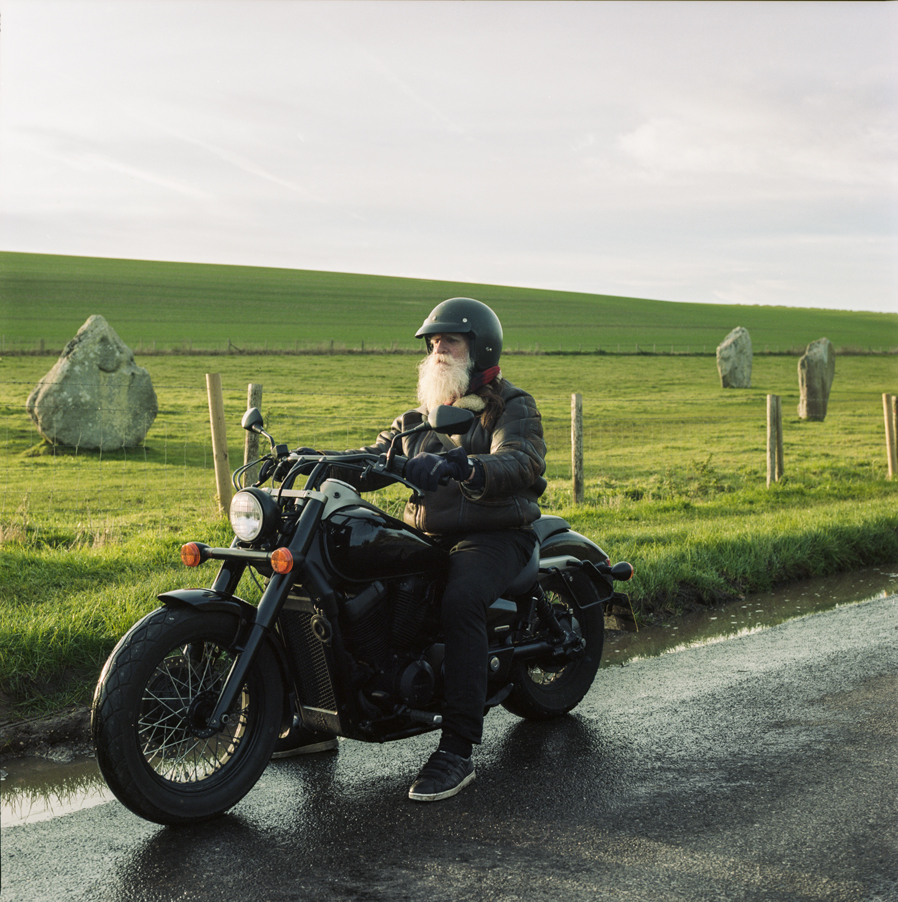
Terry Dobney, 70-year-old biker and Archdruid – Avebury, Wiltshire
“My grandfather and father both rode motor-bikes most of their lives – I was brought up in the seat of a sidecar – so that was normal for me. I remember, in 1958, witnessing [famed biker hangout] the Ace Cafe at 10 years old, just stood there hanging onto the railing. These guys were rushing up and down the road with no crash helmets, their jackets flying in the air. To me, they were like Spitfire pilots.
“At school, you were either a mod or a rocker; you could either afford motorbikes or beer, but not both because they took all your wages. It’s why we learned to maintain our own bikes, to make-do and mend. But there was prejudice.
“Our hair was long; we were loud and boisterous. You were barred from pubs, barred from cafes, barred from the cinema… It didn’t do us any good attracting the girls!
“But as long as you had some petrol in the tank, you could go to the local beauty spot and watch the world go by. You were king of the road; it absolutely brought you alive.
“The classic situation was that when you got married, you had to decide whether to sell the bike or hide it at the back of the shed. A large number of people my age have now dragged the bike back out, restored it and are enjoying riding again, though they’re not as quick and their jacket doesn’t fit like it used to.
“People ask how you can go from being a biker to a Druid, but one was the catalyst for the other. It’s a system of ancient beliefs based on knowledge of the elements and how the planet actually works.
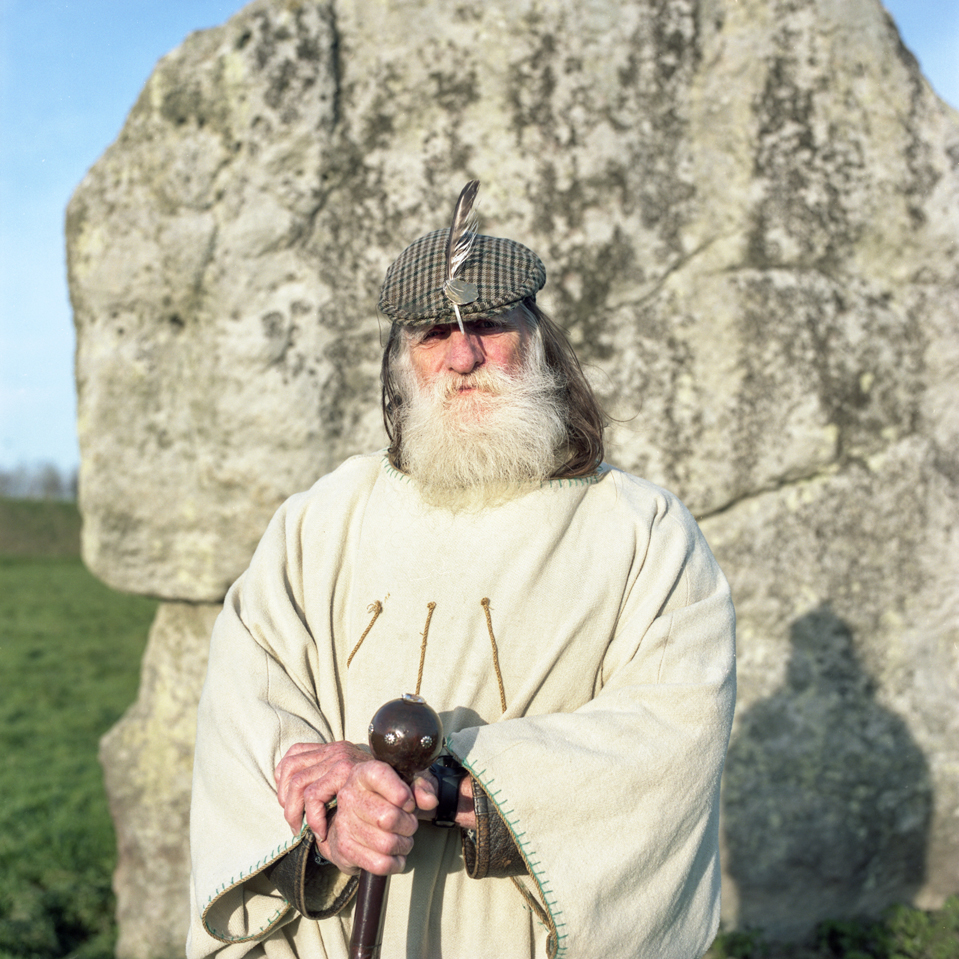
“It all ties in with freedom. Various religions keep telling us what’s right and what’s wrong, whereas I’d already figured that out riding 90 miles per hour on my motorbike!
“When you’re out on the road, breaking all the rules, life flashes before your eyes continuously. I know several grizzly old motorcyclists who are very philosophical. In fact, you’ll find that most bikers are Pagan. It brings you closer to nature when you’re on your bike.
“There’s that element of rebellion, too. I’ve sat on the parish council here and tried to put across the Pagan and Druid perspective only to encounter full-blown prejudice against my beliefs.
“It’s still like that famous scene with Marlon Brando in The Wild One, where the two girls in the cafe say, ‘Hey Johnny, what are you rebelling against?’ And he just says, ‘What’ve you got?’”
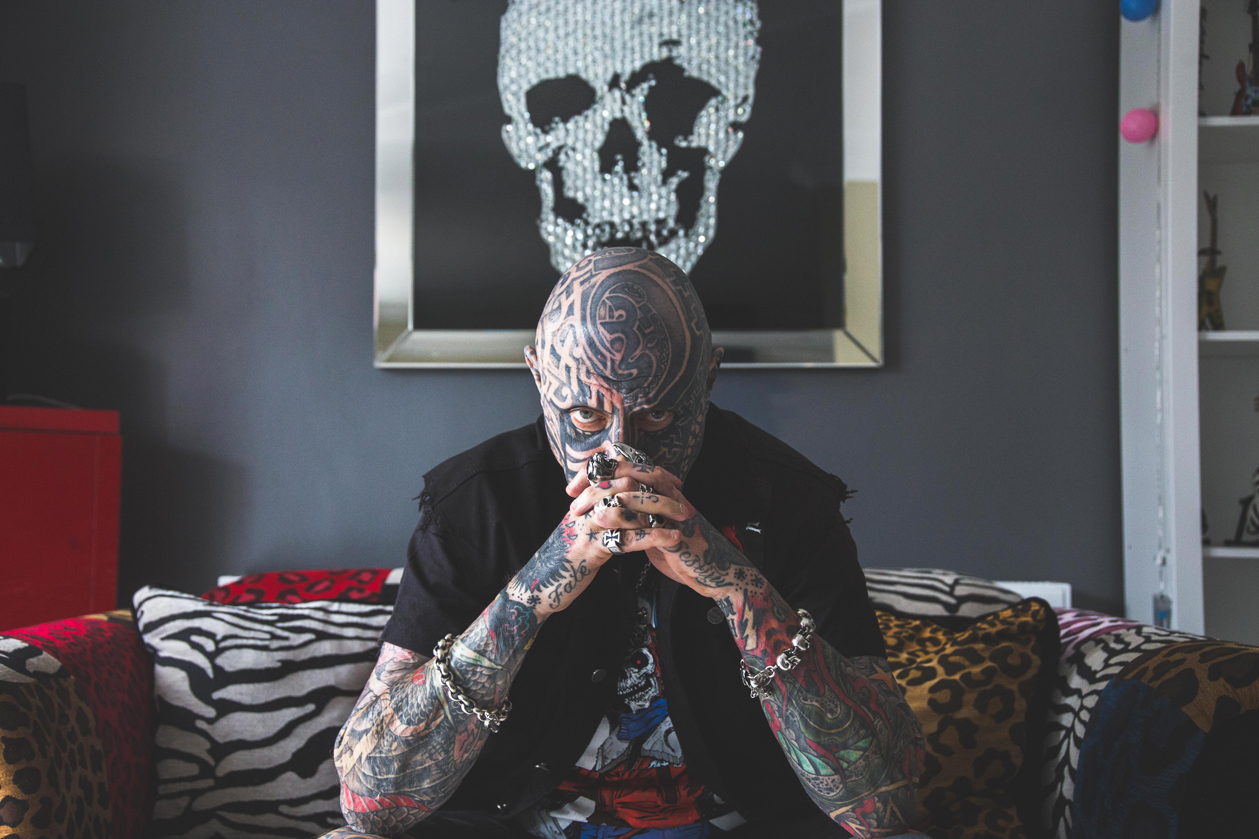
Keith Gordon, 62-year-old tattoo fanatic and former skinhead – Dagenham, Essex
“I became a skinhead at the age of 13. When you’re a teenager, you’re full of insecurities. But skinheads were all about being hard and aggressive back then – and I was young and up-for-it. It made me feel better about my image: I looked outrageous in those days. If you saw me, you’d be shocked. People would avoid me on the street, terrified.
“I worked in a factory at the time and there was this guy with all these tattoos; he looked fucking brilliant. I just thought, ‘Wow.’ That inspired me to get my first tattoo at 17. And because I was developing OCD at that particular time, I would get very obsessive and addicted to anything like that.
“One design led to another and soon my arm was covered with old-school tattoos. That gradually took me into a whole new form of imagery. It still gave me that feeling of being hard, but my look completely changed.
“Today all types of people have tattoos; it feels a lot more about peace and love and all that. But since I’m older, my mentality is still stuck in the past: tattoos, to me, are about tough people who don’t give a fuck.
“Honestly, I would be happier if they weren’t so popular and I could be more unique. Now I’m almost embarrassed looking the way I do because everyone else has so many.
“I still try to make mine as outrageous as possible to stand out from that ever-so-nice, hipster image. I mean look at me: I’ve totally covered my face. Not many people do that, even now. One or two? You’re just joining the rest of the ordinaries.”

George Skeggs, 74-year-old ‘individualist’ – Soho, London
“I first moved to Soho in 1957, when everyone came here to get discovered and be a rockstar. We’d heard of the 2i’s coffee bar; it was where British rock’n’roll was born and became the place to go. I walked in and a guy behind the counter said, ‘Can you play guitar? Alright, play us a tune.’ He agreed to pay me £8 a night and said, ‘Have all the booze you want.’ And that was that.
“By the end of the ’50s, Teddy Boys were coming to an end and moving onto what we call Modernists, of which I was one of the first. No more cabbage-boy haircuts and long drape coats.
“We dressed with a more chic Italian look and French styling. It was very popular at the time but I had my own imprint; I was always customising my stuff to the way I wanted to look as well as trying to find interesting clothes that no one else could find.
“My precedent was mine and it didn’t belong to anyone else. I think I was born with a certain attitude, you see: always out front leading the pack. I’m an artist. What you see now is my artistic expression.

“At school, two of my paintings were included in an exhibition that went all over China – that was a turning point for me. It’s like a lightbulb goes on in your head – click! – and as you get older it gets brighter and brighter because you’re just adding to it.
“The thing is, some people never turn that lightbulb on; they’re searching for the switch all their lives. Maybe some find it as they get older, but by then they’ve missed out on 40 years of their own development. For me, it’s been a constant growing pattern all my life.
“A lot of posers are trapped behind a screen through Instagram; people want to live in a perfect world but it’s not real or lived like mine. All I know is I’m just me: a human being trying to express myself. If you want to call that cool, then call it cool.”
This article appears in Huck 65 – The Coming of Age Issue. Buy it in the Huck Shop or subscribe to make sure you never miss another issue.
Check out more by photographer Theo McInnes or follow him on Instagram.
Latest on Huck

Analogue Appreciation: lullahush
Ithaca — In an ever more digital, online world, we ask our favourite artists about their most cherished pieces of physical culture. Today, it’s Irish retro-futurist lullahush.
Written by: lullahush

Spyros Rennt captures connection and tenderness among Berlin’s queer youth
Intertwined — In the Greek photographer’s fourth photobook, he lays out spreads of togetherness among his friends and the German capital’s LGBTQ+ party scene.
Written by: Isaac Muk

The rebellious roots of Cornwall’s surfing scene
100 years of waveriding — Despite past attempts to ban the sport from beaches, surfers have remained as integral, conservationist presences in England’s southwestern tip. A new exhibition in Falmouth traces its long history in the area.
Written by: Ella Glossop

Plestia Alaqad: “Journalists should focus on humanising people”
Huck’s April interview — Having become one of the most crucial and followed voices from inside Gaza in the aftermath of October 7, the award-winning author and journalist is releasing a new memoir, ‘The Eyes of Gaza’, collating diary entries made over the past 18 months. We caught up with her to hear more about it.
Written by: Isaac Muk

The instrument makers taking DIY music to a whole new level
What does it take to construct a modular synth? How do you turn a block of wood into a double bass? Here, four craftspeople explain why they chose to rip up the rulebooks and build their own music-making machines.
Written by: Daniel Dylan Wray

Southbank Centre reveals new series dedicated to East and Southeast Asian arts
ESEA Encounters — Taking place between 17-20 July, there will be a live concert from YMO’s Haruomi Hosono, as well as discussions around Asian literature, stage productions, and a pop-up Japanese Yokimono summer market.
Written by: Zahra Onsori